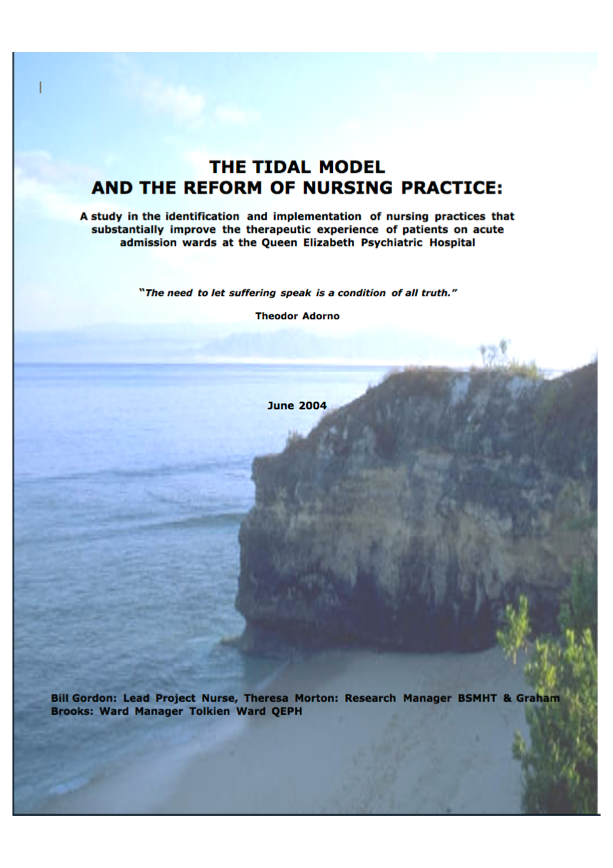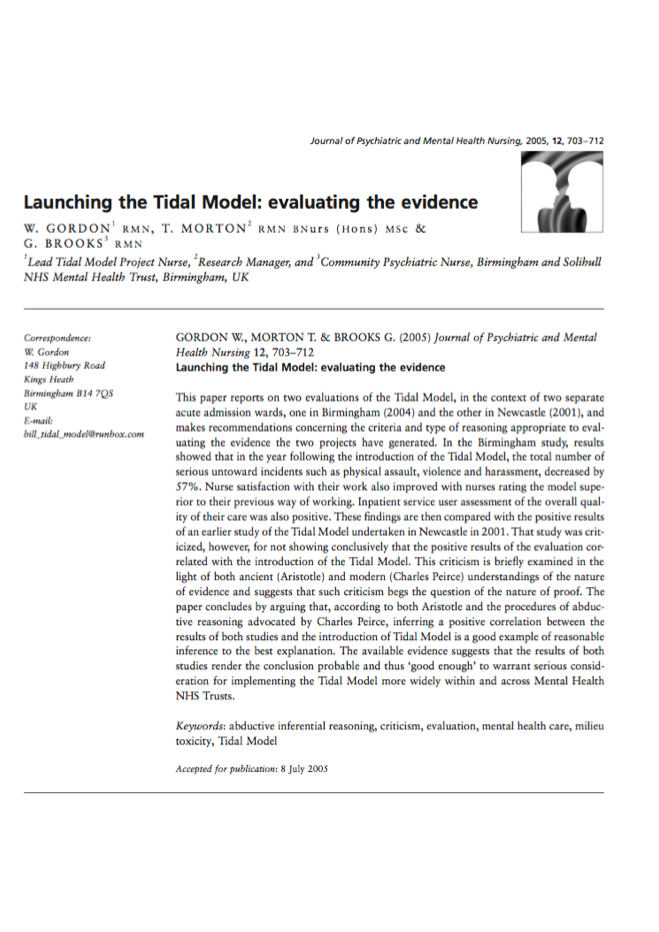Life-Coaching and Mental Health
A radically holistic approach to fostering mental health as evidenced in the Tidal Model, remains central to my whole approach to coaching.
Put simply, my highest priority is to see (feel, hear) what the person I am coaching is actually experiencing and to get a grip on their map of reality as they define it, whether they have a psychiatric diagnosis or not. Everything else flows from that.
If someone comes to me with a diagnostic ‘label’ it is that much more important for me to seek out, and communicate with the person behind the label and behind the diagnosis and to meet and understand that person on their own terms.
My job is to help people identify their own life-vision along with the specific goals, which will support that, and to help them create an action plan to turn these into reality. I help people manage their ‘transition’ from where they are today to where they want to be tomorrow.
The issue is often this: people with a history of involvement with the psychiatric services often find that their entire life story has been ‘taken over’, and colonised, (documented, diagnosed, re-told) by psychiatrists & well-meaning helping professionals, as well as by family and friends.
Therefor a simple act of reclamation of that persons’s own life story and version of events can be the first step on a new journey of discovery of the meaning of emotional and spiritual wellness for that person.
Having reclaimed the story of breakdown and distress, the person can then begin to map out a new course in life for themselves – one small step at a time, and one day at a time.
Helping people become more aware of how specifically change is happening to them is a key coaching skill to be used with every client and this skill is especially important in working with people who are in recovery from mental health issues.
In addition to that, asking the right questions increases people’s awareness of the areas of choice actually open to them. This enables people to take more responsibility for their experiences and behaviour.
After all it is the person, not the coach, who is the world’s leading authority on that person’s life and guiding life-vision.
Respecting that tends to subvert traditional psychiatric practice and involves giving both responsibility and power ‘back’ to the person in the following ways:
-
1.It is the client that makes the phone calls
-
2.It is the client who sets the agenda
-
3.It is the client who chooses the goals
-
4.It is the client who develops the action plan and discovers the steps which need to be taken
-
5.It is the client who is accountable to report back to the coach on the steps they have taken within the agreed time frame
-
6.The coach does not tell the client what to do, where to go or how to get there










